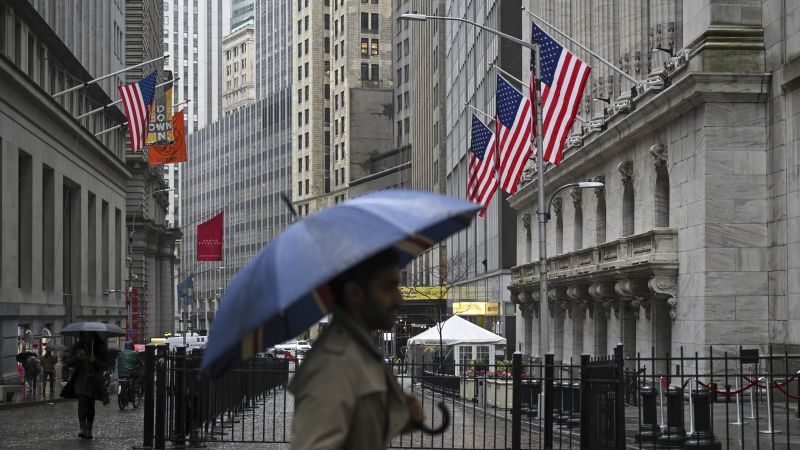The stock market rally that began in 2024 has come to a sudden halt in April, with the S&P 500 index falling 4.6% and all major US indexes on track for their first negative month since last October. Strong economic data and persistent inflation have caused Wall Street to push back expectations for when the Federal Reserve will begin cutting interest rates. In addition, rising tension in the Middle East has led to a boost in oil prices, adding to the turmoil. The Fear & Greed Index, which measures market sentiment, closed Thursday at a “fear” reading, down from “greed” a month ago.
Inflation remains above the Fed’s 2% target, with employers adding more jobs than expected in March and spending at US retailers rising. Despite this, Fed Chair Jerome Powell stated that rate cuts will likely come later than expected, and the central bank will need to see more signs of moderating inflation before making any changes. Traders now project that the Fed will begin easing rates in July or September, as opposed to earlier expectations of multiple rate cuts starting in March. This shift in expectations has led investors to prepare for a higher-for-longer regime in both inflation and interest rates.
The International Monetary Fund has upgraded its forecast for American economic growth, but warned that inflation will be challenging to control. While the US economy is a key driver of global growth, the IMF noted that it is “overheated,” calling for a cautious and gradual approach to monetary easing by the Federal Reserve. Bond yields have spiked this week as investors bet that rates will remain elevated for longer than anticipated, with the 10-year US Treasury yield trading at 4.65% on Thursday. Corporate earnings, while initially promising, have not been sufficient to reignite the stalled rally, with stocks continuing to decline.
Events in the Middle East, including airstrikes between Iran and Israel, have added to Wall Street’s concerns. Oil prices initially spiked higher on reports of the attack, but later reversed gains as the limited nature of the action became apparent. Investors have sought safer havens, with gold futures rising this month as traders look for protection from geopolitical turmoil and persistent inflation. Meanwhile, mortgage rates in the US have soared, exceeding the key 7% threshold and exacerbating the country’s home affordability crisis. This increase is based on expectations that the Federal Reserve will not cut interest rates, influenced by hot inflation readings.
Global tech firms, such as Apple, are looking beyond China to secure their supply chains, cut costs, and open up new markets. Apple has announced plans to buy more components from Vietnam, following a trend among companies seeking alternatives to China amid escalating trade tensions. CEO Tim Cook recently visited Vietnam and pledged to enhance cooperation and investment activities in the country, where Apple has already invested billions through its supply chain and created hundreds of thousands of jobs. Vietnam’s growing importance as a manufacturing hub highlights the shifting dynamics of global supply chains away from China.


